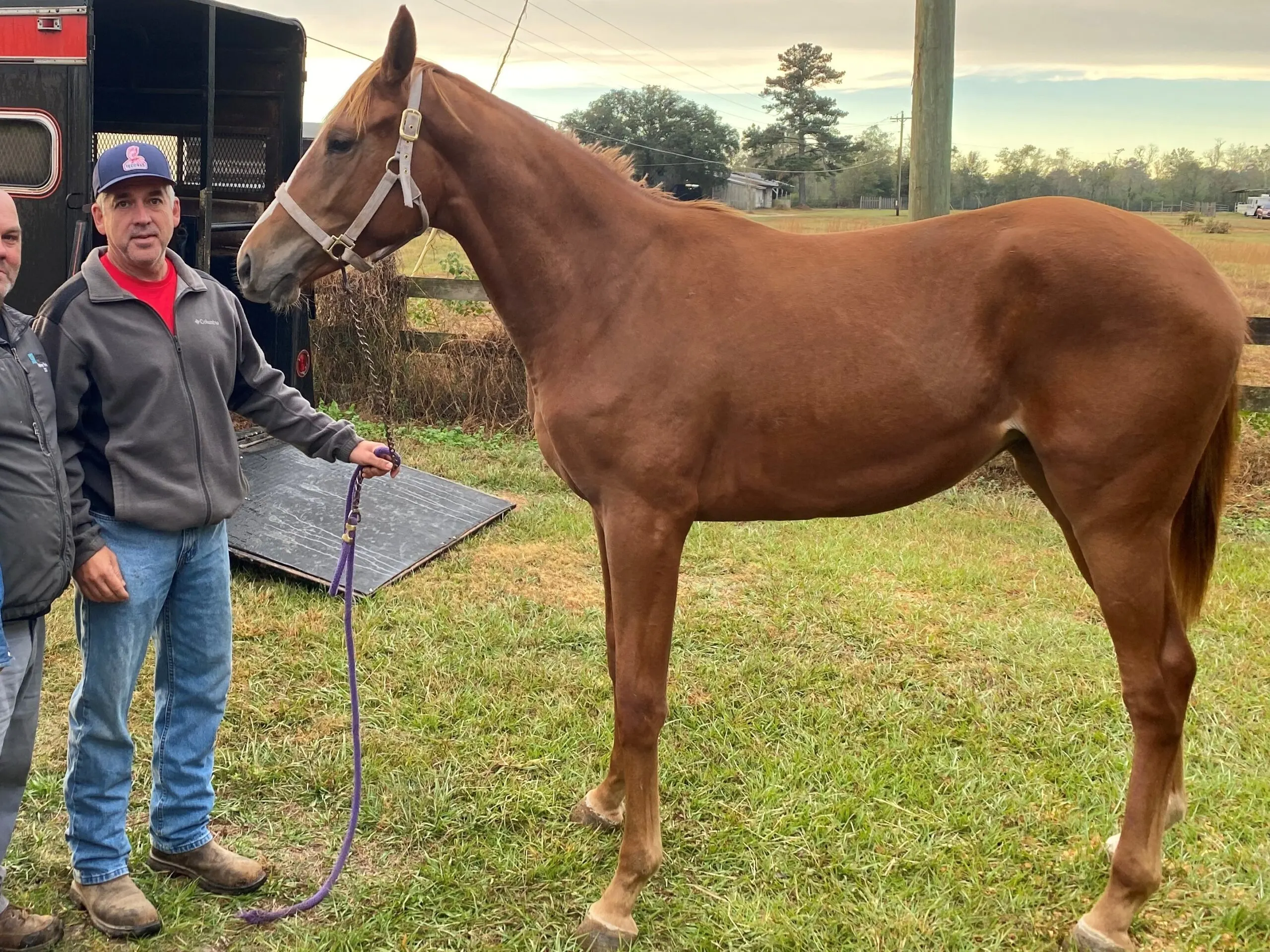Last updated: December 7, 2022
We traditionally use bute to treat our horses’ joint pain. Although it can effectively relieve the discomfort, it can have side effects–and some of those include liver damage. So, I recently started using supplements because many don’t carry the health risks associated with traditional medications. But do they work?
Joint supplements for horses can reduce symptoms of arthritis and other joint-related problems, but they’re not a cure for the disease. However, horse supplements are not all the same; some don’t include effective ingredients and are a waste of money.
Horses develop arthritis and other types of joint pain from overwork, age, or genetics. Joint supplements are a common way to combat arthritis and other types of joint pain in horses. These products are marketed as safe for animals, but is there proof that they work or won’t damage your animal’s health over time?
Horses. They are a joy to ride and an even greater joy to watch in motion. Naturally, we all want good health for them. In particular, we want their joints to stay limber and their legs to remain strong.

As a horse grows, time and use can take a toll on its body, and often its joints start feeling the effects of wear and tear. This guide discusses joint supplements for horses – whether they work, which are the best, and how long it can take to see results.
Please note that this post is not a medical guide; I simply offer a broad perspective on joint supplements for your horse.
| Brand | Price | Prime | Buy | |
|---|---|---|---|---|
 | Cox Veterinary Acti Flex Joint Compound Gallon | PrimeEligible | Buy Now | |
 | Bute-Less Comfort & Recovery Supplement Pellets, Healthy Inflammatory Response, 5 lb / 80 Day Supply | PrimeEligible | Buy Now | |
 | Majesty's Flex XT Wafers - Superior Horse / Equine Joint Support With Increased Supplement Levels - Glucosamine, MSM, Yucca, Vitamin C - 30 Count (1 Month Supply) | PrimeEligible | Buy Now | |
 | Formula 707 Joint 6in1 Equine Supplement, Daily Fresh Packs – Support for Joint Integrity and Inflammatory Response in Horses – Green-Lipped Mussel, MSM, Glucosamine, Chondroitin & Collagen | PrimeEligible | Buy Now | |
 | Absorbine Bute-Less Comfort & Recovery Supplement Pellets, Healthy Inflammatory Response, 2 lb / 32 Day Supply | PrimeEligible | Buy Now | |
 | Majesty's Flex HA Wafers - Superior Performance Horse / Equine Joint Support Supplement - HA, Vitamin C, Yucca, Glucosamine - 30 Count (1 Month Supply) | Prime | Buy Now |
Do joint supplements for horses really work?
Like any athlete, horses require specialized care to stay in peak condition. A major part of this is ensuring that their joints are healthy and free from pain. Unfortunately, age and injuries can take their toll on a horse’s joints, leading to inflammation and reduced mobility.
Joint supplements are one way to help mitigate these problems. The most common ingredients in joint supplements are glucosamine and chondroitin, which have been shown to reduce inflammation and improve joint function.
There is also evidence that MSM – Methyl-sulfonyl-methanes can play a role in reducing joint pain. While joint supplements can be helpful, it’s important to consult with a veterinarian before giving them to your horse.
Some Horses may have allergies or other medical conditions that make certain ingredients unsuitable. Your vet can help you choose a supplement that will be safe and effective for your horse.
Horse supplements are a multi-million-dollar industry in the U.S., and hundreds of over-the-counter horse joint care supplements are available; you can buy them on the Internet or at any tack and feed store.
But many people question their effectiveness. There is evidence that joint supplements may help horses with arthritis, but it’s unclear whether they work for other purposes like injury prevention or performance enhancement.

What do horse joint supplements contain?
Almost all horse joint supplements contain three vital ingredients
- Chondroitin
- Glucosamine
- MSM – Methyl-sulfonyl-methane
Scientists have discovered that as horses age, chondroitin and glucosamine production slows down. There is a theory that feeding supplements with these ingredients could reduce inflammation and slow down the wear and tear of the cartilage.
MSM is a sulfur-containing compound with the same exact goal: it helps slow down the wear and tear of cartilage, improve mobility, and prevent pain to better your horse’s quality of life.
So, do horse joint supplements work?
While horse joint supplement usage is prevalent, there is still a lot of debate in equine veterinary circles; some vets have found success with certain products, while others don’t support their use at all.
One issue is that horses have a very different intestinal tract than humans, making it challenging to apply joint supplement studies to equines. Even though some human-specific supplements seem to be effective in general, there isn’t enough research specific to horses’ to give us an answer one way or the other.
Adding to the uncertainty is that many of these supplements are not regulated by the Food and Drug Administration because they are considered food supplements and not ‘drugs.’
To summarize
- It is doubtful that your horse’s performance will improve dramatically after you begin feeding joint supplements.
- Having said that, some horse owners have reported a slight improvement in mobility, range of motion, and quality of life in their horses with degenerative joint disease after beginning certain joint supplements.
- Many owners continue feeding joint supplements in the hope that they will slow down the wear of cartilage.
- Some horse owners use joint supplements as a preventive measure to ward off degenerative joint disease. Still, no scientific studies show supplements are effective at preventing joint degeneration.

So what is the best joint supplement for older horses?
I’ve used various joint supplements in different forms, liquid, powder, and wafers. I haven’t found one type to be clearly better than another. A lot has to do with your horses and how they consume and react to the supplement.
The best joint supplement for older horses includes various ingredients to support cartilage, connective tissue, and joints. Some essential components to look for are glucosamine sulfate with chondroitin sulfate, MSM, and vitamin C.
It would help if you supplemented some older horses’ diets with calcium and phosphorus to help maintain the health of bones and teeth. So what is the best joint supplement for older horses?
That question will depend on your needs or goals for your horse, but it’s essential to research all options before you decide so you can find the product that works best!
My favorite liquid joint supplement is Acti Flex Cox Veterinary Lab Joint Compound, and my favorite powder is Manna Pro Rapid Flex. My overall favorite joint supplement is Majesty’s Flex Wafers.
Majesty’s Flex wafers are a popular choice for the following reasons:
First of all, it combines the holy trinity of joint care: MSM, glucosamine, and chondroitin. Although there are no studies that these ingredients improve mobility and reduce wear-and-tear of the cartilage, many horse owners swear by them.
It also contains Yucca extracts, a powerful anti-inflammatory herb that can relieve pain and inflammation in horses with degenerative joint disease. It has helped many geldings relieve joint stiffness, walk with ease, and reduce debilitating pain.
Third, and most importantly, these wafer-based supplements are straightforward to administer, and even owners of multiple horses can easily separately feed the ones that really need the supplements. The wafers reduce waste which you often see in other food additive supplements.
Pros
- Very little waste – one wafer per horse, which can be mixed with individual feed
- Protects and repairs damaged cartilage
- Improved joint mobility
- It also improves hair, skin, and coat
Cons
- Some picky horses would not eat it.
- A few horses gained a lot of nervous energy with them due to the molasses and cornmeal.
- Price changes.

What is the best anti-inflammatory for horses?
I like Absorbine ButeLess Support for Inflammatory Response.
Absorbine Bute-Less pellets contain Devil’s Claw, Yucca, and Vitamin B12 as the primary ingredients. These provide powerful inflammation relief to horses without being harsh on their stomachs.
Even lame horses or horses with founder/laminitis were able to show signs of improvement after taking this supplement for just a week!
Horse owners recommend keeping bute less on hand to quickly administer it in the unfortunate event a horse is injured. It quickly relieves pain and inflammation and helps get your horse back to normal in a short time.
Pros
- Easy to feed
- Quick results
- Gentle on horse’s tummy
Cons
- Not for pregnant mares and for horses with ulcers (as devil’s claw could aggravate ulcers).
How long do joint supplements take to work?
The time it takes for horse joint supplements to show results vary from supplement to supplement. This is mainly due to the difference in their ingredients.
I owned an older horse that developed stiffness and pain in her stifle joint. She never got well enough to ride but improved and began moving around better after six weeks on supplements.
Most horse owners also find that certain supplements work much better in reducing pain and improving mobility than others. These differences are primarily due to the number of anti-inflammatory ingredients used.
In general, any horse joint supplement you select must contain the three ingredients mentioned above because these ingredients work better in combination with each other.
In addition to Glucosamine, chondroitin, and MSM, you can also look for supplements with ingredients like collagen, vitamin C, and hyaluronic acid, as well as herbs like devil’s claw Boswellia and yucca.
All these work in tandem to protect your horse’s joints and provide building blocks to produce healthy tissue. With consistent use for at least one month, you might notice a lot less ‘cricking’ sound from your horse’s joints!
Please note that no two horses are the same. What works for one may not necessarily work for another. That is why it is essential to consult a vet from time to time to tweak the dosage, assess the joint’s condition, and then take the necessary steps to provide your horse with the best possible pain relief.

Key takeaways: Do joint supplements really work, or are they a waste of money?
Preliminary research shows that the combination of MSM, glucosamine, chondroitin, Hyaluronic acid, Vitamin C, and herbs like Yucca and Devil’s Claw could prevent further degradation of joint and cartilage wear-and-tear in old horses. Young horses might also benefit from these supplements as they have preventive and protective effects on their joints.
However, product selection is essential since no two supplements are the same. Besides, what works for one horse may not necessarily work for another.
It is important to note that the FDA does not regulate horse joint supplements as they are classified as nutraceuticals or food supplements and not drugs. Also, we definitely need more trials and studies to put the debate to rest whether horse joint supplements really work or if they are a waste of money.
Below is a helpful video that discusses when you should start horses on joint supplements.
FAQs on Horse Joint Supplements
What is the best joint supplement for horses with arthritis?
Researchers found the best supplement for horses with arthritis contains glucosamine and chondroitin sulfate, MSM, and Omega-3 fatty acids to reduce the symptoms associated with arthritis in horses. Majesty’s Flex Wafers and Formula 707 Daily Fresh Packs Equine Supplements are both excellent choices.
How can I help my horse with arthritis?
You can help your arthritic horse by keeping it at a healthy weight, inspecting its feet regularly, feeding a joint supplement that includes glucosamine, chondroitin sulfate, MSM, and Omega-3 fatty acids, and incorporating a range of motion exercises into its daily routine.
Should I give my horse joint supplements?
Before starting your horse on joint supplements, speak to your vet to ensure they are safe. For example, you should not give pregnant mares and horses with ulcerative colitis certain supplements because they could contain ingredients harmful to your horses.
Are horse joint supplements a waste of money?
If you buy the wrong supplements, they might not provide any relief to your horse and, worse, could cause nutritional imbalances in the animal. This can result in a waste of money!
Meet Miles Henry
An avid equestrian and seasoned racehorse owner, Miles Henry brings his extensive experience to the equine world, proudly associating with the AQHA, The Jockey Club, and various other equine organizations. Beyond the racetrack, Miles is an accomplished author, having published various books about horses, and is a recognized authority in the field, with his work cited in multiple publications.
🔗 Connect with Miles:
Twitter
Facebook
YouTube: Check out race highlights, horse care tips, and more!



